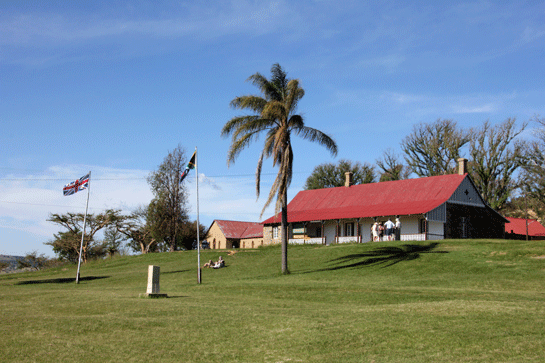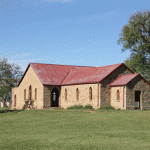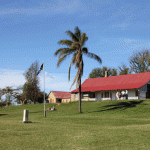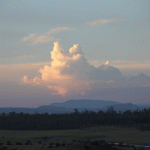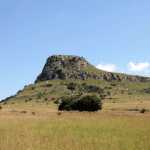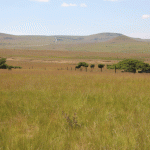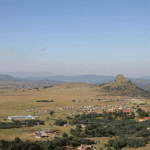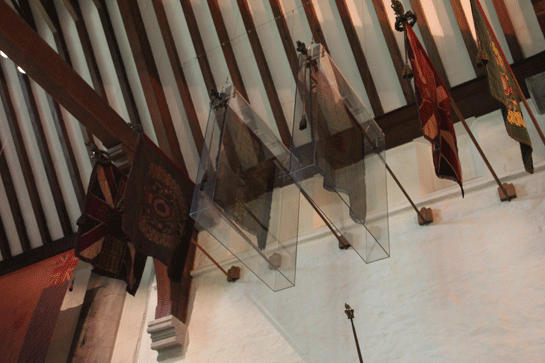After our drenching in the Drakensburgs, Sibu and I set off NW towards a place that has gone down in British colonial history – Rorke’s Drift.
The battle between the British and Zulu forces late on 22nd January 1879 not only restored some British honour in the Anglo – Zulu war, but has become the stuff of legend. The Hollywood film hardly does the actual battle justice, and you have to stand on the ground where so many fell to have any chance of appreciating what happened there. I’m not going to go into the full history here as the web is full of information, but when you stand on the manicured lawn that now exists and imagine 2500 (some say 4000) brave Zulu warriors throwing themselves at the hastly erected British defences, a tingle runs through your spine. Little remains of the original scene as trees and new buildings have appeared, but with some imagination, you can remove them and try to understand the fear, adrenaline, excitement and horror of the overnight battle. Eleven Victoria Crosses were awarded after the action – more than any other battle in military history, but we need to look at both sides of this conflict. So many colonial actions are reported from the European side only, but there are two sides to every battle. Many of the British were injured and could not be evacuated, whereas many of the Zulus were desperate to fight to ‘wash their spears‘, so that they could marry.
We stayed at the fugitives drift lodge, where three officers from the Royal Welsh Regiment were studying. Many troops in the battle were welsh, and a strong bond has remained between the regiment and the area. Officers come every year for a few weeks to learn about the history of the campaign. I can’t think of a better way to cement relations with both people’s.
The sun fell and a new day dawned, with yet more to learn…
We toured the field at Isandhlwana. Another historical battle, it happened on the morning before Roukes Drift and was the greatest defeat in British colonial history. Again, the web has extensive information, but there are some wonderful lessons we can all learn form these two battles. The British forces were defeated at Isandhlwana because they were overconfident and poorly led. The Zulus through excellent training, discipline and weight of numbers inflicted a defeat which brought down a government and resounded across the world. Now you’re probably wondering what I’m babbling on about here. How many people or businesses do you know that are overconfident and poorly led..? I wonder when they will fall..? (Notice I do not say if!)
At Rorkes Drift, the British had to stand and fight on a small defensive line against poorly led Zulus. They were excellently led and had little choice but to fight in their awful position. They stood shoulder to shoulder and supported each other until they were spent. This is where true victory is. If your family or collueges stand with you, any battle in life is easier to face. Once you are forced, or split apart then your opposition can easily exploit the cracks. I’ve worked in businesses where the cracks were huge and argument took people’s eyes off the real issues…
A final thought. When you’re out in the mountains and the chips are down, you stand together, or you fail, or even die. Believe me, I know…
As an addendum to this blog, I recently visited the cathedral at Brecon in Wales, where the famous colour of 1st Battalion, 24th Regiment of Foot is hung in the Havard Chapel. This colour was brought from the battlefield of Isandhlwana and for a few days, lost in the Buffalo River, before being rescued and brought to Rorkes Drift. I sat in silence, staring at the colour, only being able to imagine the journey it had undertaken…
I also visited the Regimental Museum of the Royal Welsh. If the Anglo Zulu War of 1879 is a part of history which fires at your imagination, these two places are a must…
